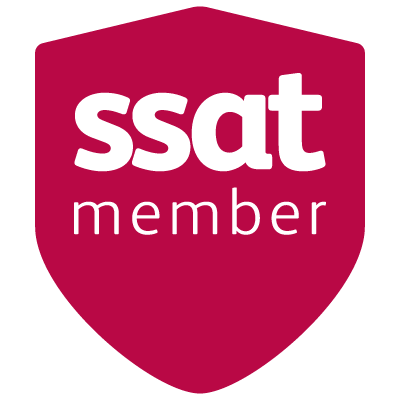Homework
Well organised homework can play a vital role in raising standards of achievement.
Homework Rationale
Well organised homework can play a vital role in raising standards of achievement.
Homework has the potential to make an important contribution to classroom accelerated learning and the purpose of homework should be to practice, reinforce, embed or apply acquired skills and knowledge. All research suggests that homework enhances pupil learning, improves achievement and develops pupils’ independent study skills that generates an ethic of life-long learning habits. In a recent study by the Educational Endowment Fund, “homework has a positive impact on average (+ 5 months), particularly with pupils in secondary schools” (2021).
North Star Academy believes in raising the profile of learning by providing carefully planned and differentiated homework in all areas of curriculum. Homework activities will vary significantly, particularly between younger and older pupils, including but not limited to: home reading activities, repetition of basic literacy and numeracy, longer projects or essays and more directed and focused work such as revision for tests.
We recognise that parents and carers make a real difference to children’s education and, when parents and carers work in partnership with school, our young people achieve better outcomes. By demonstrating an interest and discussing homework with your child, you will enable our young people to recognise that the home school relationship is supporting them on a life long journey to learn and it’s essential our young people recognise the value of it.
Between the ages of 5 and 16 children spend only 15% of their lives in school, so supporting them at home really improves their chances of success. Parents and families are by far the most important influencers on children’s lives.
Aims
- To strengthen the collaborative approach between home and school by promoting parental support and involvement.
- To raise achievement and outcomes for all students at North Star.
- To encourage pupils to appreciate the value of life-long learning.
- To develop independent learning skills, supporting them for the next stage of their education, employment or training.
Purpose
To help our students
- Make accelerated rates of progress against national benchmarks.
- Become confident and independent learners.
- Develop independent study skills such as organisation, time management and self-discipline.
- Embed previous learning so knowledge is retained in the long term memory.
- Prepare for future learning and assessment.
Purpose
To help our teachers
- Create further opportunities for students to demonstrate their learning further.
- Improve the quality of teaching and learning through improved knowledge and understanding.
- Create a positive climate for learning, where teachers can incentivise through the rewards system.
- Celebrate success.
Nature of Homework
By nature, North Star Academy believes homework should be meaningful and enjoyable and never used as a punitive measure for failure to complete work during the school day. Also, we strongly believe in flexibility, so it allows our students to take part in a full programme of extra-curricular activities that we offer and seeks to minimise the level of inconvenience to family life.
At North Star Academy, we believe only when necessary should we give homework. As a guide, we aim for:
- 1 hour of Maths/Numeracy/Timetables
- 1 hour of English/Reading/Spellings
- 1 hour of Science/Working Scientifically
**Open group subjects: 1 hour or only when required
All homework will be kept in designated homework folders.
(** Examination Subjects, ICT, Art, Music, ASDAN, Vocational subjects, PE, will be given when necessary throughout each term)
The same expectations exist for KS4; however, this maybe be different in preparation for examinations and assessments and course deadlines will dictate the meaning, frequency and nature of homework.
To ensure we give every possible chance for students to complete their extended learning we offer homework club, every Wednesday after school and also Friday afternoon. Both opportunities are optional. We understand that it is not always possible for students to do their extended learning at home which is why we offer the chance in school before students take their work home.
Roles and Responsibilities
The Student:
- To take responsibility for their homework.
- To be organised so that necessary books and equipment are not left at school or at home.
- Attempt the homework and communicate with class teacher where difficulties exist.
- Write down, when necessary, homework tasks and deadlines.
- Take pride in the quality, presentation and content of homework tasks.
The School:
- To plan homework activities that reflect the learning being done in class.
- To set homework which is challenging but achievable.
- To ensure that the work to be completed is clearly understood by the pupil.
- To ensure the learning is appropriate to the needs of the pupil.
- To ensure that learning activities are varied and meaningful.
- To mark homework promptly and provide effective feedback in line with the marking policy.
- To monitor homework (this will be done by class teachers, tutors and SLT).
- Will incentivise the success completion of extended learning.
Parent and Carers:
- To provide encouragement and support to children when they require it, especially with research.
- To be actively involved in the homework of their child/ children, in particular when hearing and discussing reading.
- To encourage children and praise them when homework is completed satisfactorily
- To check that the quality and presentation is of an acceptable standard
- To support children with homework but not to do it for them
- To contact the school with any concerns at the earliest opportunity so we can provide advice and additional learning mentoring support.
Advice and Guidance
Homework allows you to see what your children are doing and to support their learning. This partnership between school and home is a vital part of successful education. We take the view that children are likely to get more out of an activity if parents get involved, as long as they do not take over too much!
If you are unsure about how much help to give, you should discuss it with your child’s teacher or our HUB support team.
They will be pleased to see you and will help with any issues you may have. From our experience, we find that these 12 simple steps may help you in getting them started.
Give your child confidence through lots of praise and encouragement. You have tremendous power to strengthen your child’s confidence and this is vital to learning.
Provide specific praise that focuses on a particular aspect of their work. Comments such as “I like the way you have…” is more effective than “you’re clever”.
Read to, and with, your child as much as possible. As part of the National Year of Reading, the Government is encouraging parents and carers to read to children, hear them read, or encourage them to read to themselves, for at least 20 minutes a day.
Encourage your child to observe and talk about what they see, feel, think etc. Even young children can be helped to read notices and signs, for example, and understand what they mean.
Make use of your local library or come in and use ours! Look out for special events and services for children. Our Family link support worker can help with this.
Visit museums and other places you think your child might find interesting. Children now have free admission to major national museums and art galleries.
If your child likes watching television, watch it together sometimes and talk about what has been watched. Children enjoy sharing their experiences and will gain a lot from the discussion. Being able describe and explain what they see and do is a key skill of learning.
Try to provide a reasonably quiet and suitable place where your child can work and show that you and all members of the family value and respect the homework activity.
Try to set time aside to support your child’s homework activities whilst also allowing some independence where appropriate.
Encourage your child to discuss homework with you, including feedback from teachers.
Try to help your child to see the enjoyable aspects of homework. For our older students, raise the importance of learning beyond school as a way of increasing levels of attainment.
Help your child to see the importance of homework and teach them to become more independent and take more responsibility so they are well placed for the next stage of their education.
Remind your children to complete and hand in homework on time. A copy of your child’s homework programme will be provided at the start of each year but please ask if you need another one.
“How we learn is as unique as our fingerprint, so every child might well approach homework differently”
KS3 Timetable
Tuesday
English / Reading / Spelling
Wednesday
Maths / Numeracy / Timetables
Thursday
Science / Working scientifically









